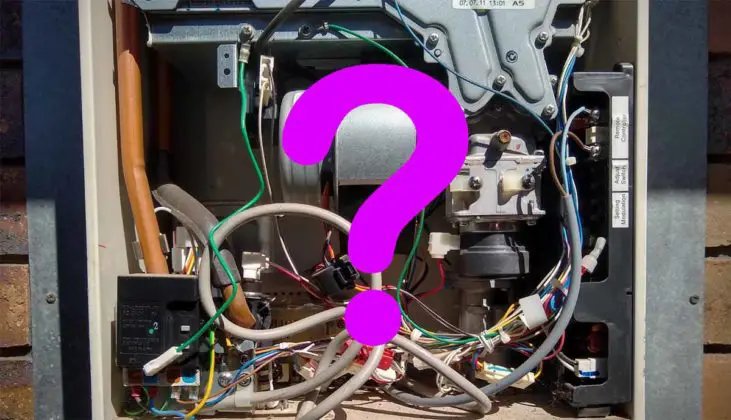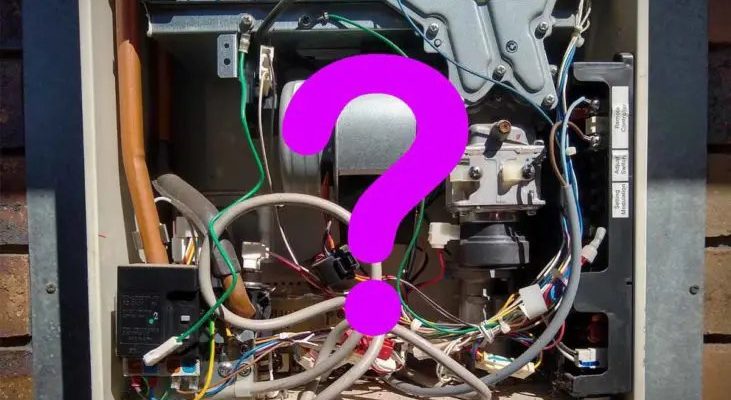
Let’s break it down. The Bosch water heater’s error code E3 usually indicates a problem with the unit’s temperature sensor. This sensor is crucial because it helps regulate and maintain the desired water temperature. Now, imagine trying to drive a car without a speedometer — you’d struggle to gauge how fast or slow you’re going. Similarly, a malfunctioning temperature sensor in your water heater means it can’t accurately monitor or regulate water temperature, leading to inconsistent heating or potential overheating.
What Does Error Code E3 Mean?
Error codes can seem mysterious and intimidating, especially if you’re not familiar with technical jargon. So, let’s demystify it a bit. The E3 error code on a Bosch water heater generally points to an issue with the temperature sensor. This component is like the thermometer of your heater. It tells the heating system when to start or stop heating based on the water’s temperature. Without it functioning correctly, your water heater might either not heat the water enough or, worse, heat it too much, which can be both inconvenient and dangerous.
You might be wondering, “What causes this error to appear?” Well, there could be a few reasons. It could be as simple as a loose connection or a more complex issue like a faulty sensor or damaged wiring. Just like a poor internet connection can disrupt your Netflix binge, a glitch with the temperature sensor disrupts the heating process. If the problem is not addressed, it could lead to more significant issues requiring costly repairs or even replacement of the unit. Therefore, it’s crucial to take this error seriously and address it promptly.
So, what should you do if you see this error code? First, try resetting your water heater. This action can sometimes clear the error, much like restarting a computer can fix software glitches. If the error persists, it might be time to call a professional technician who can diagnose and fix the issue. Ignoring it would be like ignoring a low oil warning in your car — it might work for a while, but sooner or later, it could lead to bigger problems.
Potential Risks of Ignoring the E3 Error
You might think, “It’s just an error code, how bad could it be?” Well, ignoring the E3 error code can lead to several unwanted scenarios. First off, if your water heater cannot regulate temperature properly, you might end up with lukewarm showers, which is both annoying and not energy-efficient. It’s like trying to boil pasta in lukewarm water — it’s just not going to work as expected, and it will take more time and energy.
Moreover, since the error often indicates a temperature regulation issue, there’s a risk of overheating. Overheating can be dangerous as it raises the risk of scalding and can damage the unit’s internal components. Think of it like leaving a pot on the stove unattended — eventually, something’s going to burn. The last thing you want is to end up needing a full replacement of your water heater unit due to severe damage, which could have been prevented by addressing the error code early.
Lastly, ignoring the error can void your warranty. Many manufacturers, including Bosch, require users to address error codes and perform regular maintenance. By not taking action, you risk losing warranty protection, which in turn means any future repairs might come straight out of your pocket. So, it’s in your best interest to deal with the error swiftly and maintain your water heater as recommended by the manufacturer.
Steps to Address the E3 Error
Now that we know why it’s important not to ignore the E3 error, let’s talk about how you can address it. First, ensure that your water heater is turned off for safety reasons. Just like you’d unplug a toaster before cleaning, you don’t want to tinker with a live appliance. Once it’s off, check for any obvious issues like loose wires or visible damage around the temperature sensor area.
Next, consult your Bosch water heater manual. It’s like having a map when you’re lost — it can guide you through basic troubleshooting steps specific to your model. This might include checking for any blocked vents or ensuring all connections are snug and secure. If these steps don’t resolve the issue, it’s time to call in the professionals. A qualified technician can accurately diagnose the problem and suggest the appropriate repairs.
Finally, consider regular maintenance to prevent future errors. Routine checks and cleaning can prevent issues from arising in the first place, ensuring your water heater runs smoothly. Think of it as regular oil changes for your car — small actions now can prevent major headaches down the road.
Preventative Tips to Avoid Future Error Codes
Prevention, as they say, is better than cure. To minimize the chances of encountering the E3 error again, consider adopting a few preventative measures. First, schedule regular maintenance checks. Much like visiting the dentist for regular cleanings to avoid cavities, periodic inspections can help keep your heater in top shape and catch small issues before they escalate.
Another tip is to keep the area around your water heater clean and free from dust and debris. Dust build-up can lead to overheating and malfunctions, much like a dusty air filter in your car can reduce performance. Additionally, make sure that the temperature settings are appropriate and not set too high, which can strain the unit and potentially lead to overheating.
Lastly, always be attentive to any unusual sounds or performance changes in your water heater. Think of it as listening to your body when you’re feeling off — the sooner you detect something abnormal, the better you can address it. By following these simple steps, you can enhance the lifespan of your Bosch water heater and enjoy consistent hot water when you need it.
Taking these preventative actions can go a long way in ensuring that you not only avoid the error code E3 in the future but also maintain the overall health of your heating system. Remember, a well-maintained appliance is like a reliable friend — it supports you best when you take good care of it.
